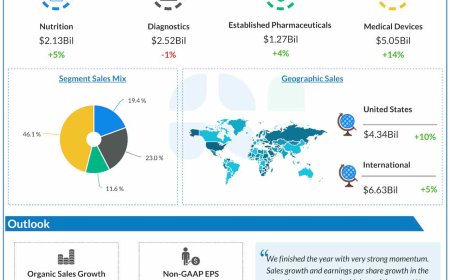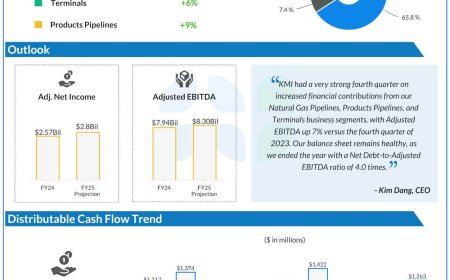The Future of Weight Management: Innovations You Should Know
Managing weight can often feel overwhelming, especially with so many options available. Understanding these innovations is key to making informed decisions as new treatments and technologies emerge. Modern approaches are transforming weight loss, and staying updated on these developments is vital for long-term success in your wellness journey. Breakthrough Technologies Changing the Game Recent advancements […] The post The Future of Weight Management: Innovations You Should Know appeared first on Insights Success.

Managing weight can often feel overwhelming, especially with so many options available. Understanding these innovations is key to making informed decisions as new treatments and technologies emerge. Modern approaches are transforming weight loss, and staying updated on these developments is vital for long-term success in your wellness journey.
Breakthrough Technologies Changing the Game
Recent advancements in technology have significantly impacted the realm of weight management. The advent of sophisticated tracking systems has made it easier for individuals to monitor their dietary habits and activity levels. Innovations in wearable devices enable users to gain insights into their health metrics, including daily steps, heart rate, and sleep patterns.
These tracking systems aim to support users in their quest for healthier lifestyles. For instance, wearables provide real-time feedback, encouraging users to stay active throughout the day. The data collected can help individuals identify patterns in their behaviour, prompting them to adjust their routines for better results. This immediate feedback loop fosters a sense of accountability, motivating users to stay committed to their health goals.
Adopting these technologies can enhance personal accountability and motivation. Imagine wearing a smart device that tracks your steps and suggests when to increase activity based on your daily performance. These tools create opportunities for users to learn more about their bodies and health. Engaging with technology in this way allows individuals to foster a more proactive approach to health management.
Moreover, virtual platforms that allow individuals to track their nutrition intake have made meal planning more accessible. Users can get insights into their macronutrient balance by logging food choices, helping them make informed diet decisions. Understanding how different foods affect the body is vital for successful weight management as it promotes healthier eating habits.
Understanding the Role of Prescription Solutions
Alongside technological advancements, new medications are emerging that offer innovative solutions for those struggling with weight management. These treatments are designed with a focus on long-term health benefits rather than rapid weight loss. As healthcare providers increasingly recognise that weight management is a complex issue, they can provide tailored solutions that align with individual health profiles.
Many of these new medications target hormonal balances or metabolic pathways that contribute to weight regulation. For example, some treatments enhance the body’s ability to process sugars or fats more efficiently, leading to gradual and sustainable weight loss. Mounjaro injection is one such option that was developed to support individuals in their weight loss journey. Such targeted approaches reflect a deeper understanding of the biological factors influencing weight, enabling healthcare professionals to provide more effective interventions.
Collaborating with a healthcare provider ensures that the chosen strategy is safe and effective for the individual. This partnership allows for a comprehensive assessment of personal health conditions, lifestyle, and weight loss goals. When individuals feel supported by professionals, they are more likely to adhere to treatment plans and make healthier choices in their daily lives.
Additionally, emerging research is shedding light on the psychological aspects of weight management. Understanding how emotional and mental health affects eating behaviours can further inform treatment approaches. Many new solutions incorporate psychological support, focusing on building healthier relationships with food. This holistic view acknowledges that successful weight management extends beyond physical health; it encompasses emotional wellness and behavioural changes.
Practical Strategies to Complement New Innovations
While technology and medications are crucial components of modern weight management, integrating practical lifestyle strategies remains essential. Mindfulness practices, balanced nutrition, and regular physical activity are significant in achieving sustainable results. By adopting a well-rounded approach, individuals can create a supportive environment that fosters positive change.
One effective strategy is to practice mindful eating. This involves paying attention to hunger cues and making conscious choices about food consumption. Individuals can develop a healthier relationship with food by slowing down during meals and appreciating each bite. Mindful eating encourages awareness of portion sizes and helps prevent overeating, essential for weight control.
Another important aspect is the incorporation of regular physical activity. Finding enjoyable forms of exercise is key to maintaining consistency. Whether through walking, cycling, or participating in group fitness classes, staying active should feel rewarding rather than burdensome. Setting achievable fitness goals can provide motivation and a sense of accomplishment, encouraging individuals to remain engaged in their routines.
Meal prepping and planning can also lead to healthier weekly food choices. By dedicating time to preparing meals in advance, individuals are less likely to opt for unhealthy convenience foods when hunger strikes. Planning meals around nutrient-dense foods ensures the body receives the necessary vitamins and minerals, supporting overall health and well-being.
Furthermore, educating oneself about nutrition can empower individuals to make informed decisions. Understanding the nutritional value of various foods and learning about portion sizes and meal combinations equips individuals with the knowledge to navigate eating out or grocery shopping. This knowledge is crucial for maintaining a balanced diet that supports weight management goals.
The Importance of Community and Support Networks
As you explore innovative solutions for weight management, don’t underestimate the power of community. Engaging with others facing similar challenges can provide emotional support and practical advice. Whether through local workshops, online forums, or support groups, connecting with others can help motivate, encourage, and inspire progress.
Building a support network is essential for fostering resilience in facing challenges. Many individuals find success by sharing their experiences and resources with like-minded peers. Participating in group activities can introduce a sense of accountability and camaraderie. When people feel connected to others who understand their struggles, they are more likely to stay committed to their goals.
Communities centred around wellness often provide access to shared resources, such as nutrition workshops or fitness classes. These gatherings can facilitate knowledge-sharing and create a supportive environment where members celebrate each other’s achievements. Sharing successes, whether big or small, can significantly boost morale and reinforce positive behaviours.
Online platforms have made finding communities that resonate with individual goals easier than ever. From forums discussing weight management strategies to social media groups focused on healthy living, the ability to connect with others worldwide fosters a sense of belonging. Being part of these communities enables individuals to gather inspiration and tips from others who have successfully navigated similar journeys.
Embracing a Holistic Approach to Health
Adopting a holistic view of health is essential. This means considering physical health and mental, emotional, and social well-being. Acknowledging the interconnectedness of these aspects can lead to a more balanced and fulfilling approach to weight management.
Integrating stress management and self-care into daily routines can profoundly impact overall health. High-stress levels can lead to emotional eating or unhealthy lifestyle choices, making finding healthy outlets for stress reduction crucial. Engaging in yoga, meditation, or even time in nature can help individuals manage stress more effectively.
Mental health also plays a significant role in one’s journey toward health and wellness. Seeking professional help when needed is a sign of strength, and therapy can provide valuable tools for addressing emotional challenges related to weight management. By prioritising mental health, individuals can develop healthier coping mechanisms and enhance their overall quality of life.
Lastly, embracing flexibility within the weight management journey can alleviate pressure and encourage more sustainable practices. Allowing room for occasional indulgences without guilt creates a healthier relationship with food. Recognising that setbacks are part of the process can help individuals stay motivated and focused on their long-term goals rather than getting discouraged by temporary challenges.
By understanding the innovations available and applying practical strategies, individuals can confidently navigate the future of weight management. Combining technology, medication, community support, and holistic practices can create a comprehensive framework that empowers individuals to achieve their health goals with confidence and resilience.
The post The Future of Weight Management: Innovations You Should Know appeared first on Insights Success.











































